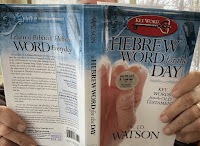Jesus in Real Life
“I like to make God and the Bible real to people,” I told a twenty-something woman servicing our house. My Easter village in our basement (from our nativity set) depicted Jerusalem at the time of Jesus' crucifixion.
As a former missionary in West Africa where village culture was similar to Bible times I’ve become driven to understand the everyday life of Bible characters. It provides fresh insight to the Scriptures.
Understanding the culture of the Bible helps interpret what it means for us today. We can better determine the timeless truths of the Bible.
Jesus was willing to be human
Jesus was a real person who had parents and siblings, bled when he got a cut and loved his friends. He was equally God and equally man. (One of the best blogs on this subject from Desiring God here)
In your relationships with one another, have the same mindset as Christ Jesus: Who, being in very nature God, did not consider equality with God something to be used to his own advantage; rather, he made himself nothing by taking the very nature of a servant, being made in human likeness. And being found in appearance as a man, he humbled himself by becoming obedient to death— even death on a cross! Philippians 2:5-8 NIV
Jesus’ willingness to take on human form is especially important to us during Passion week. We see His human pain and suffering.
However, it was our sicknesses that He Himself bore, And our pains that He carried; Yet we ourselves assumed that He had been afflicted, struck down by God, and humiliated. But He was pierced for our offenses, He was crushed for our wrongdoings; The punishment for our well-being was laid upon Him, And by His wounds we are healed. Isaiah 53:4-5 NASB
What Jesus experienced tells us He understands us in our pain. But He overcame death and we are amazed and grateful!
For sin is the sting that results in death, and the law gives sin its power. But thank God! He gives us victory over sin and death through our Lord Jesus Christ. I Corinthians 15:56-57 NLT
Books about Everyday Life in Bible Times
I have quite a few books on this subject because it interests me immensely.
These books often have lots of pictures. The table of content covers categories of things like family, household, work, society, government and religious life. They talk about food, clothing, buildings, death customs, money units, industry, and so on.
The illustrations of the Bible such as the stories and the parables use these kinds of things.
Some of my books on the subject:
Everyday Life in Bible Times (A.W. Klinck, E.H. Kiehl) Amazon currently $11.49
Handbook of Life in Bible Times (J.A. Thompson) Amazon currently $6.42 Hardcover used
The Baker Illustrated Guide to Every Life in Bible Times (J.A. Beck) Amazon currently $12.82
The Essential Companion to Life in Bible Times (M. Silva) Amazon currently $19.99
A Visual Guide to Gospel Events (J.C. Martin, J.A. Beck and D.G. Hansen) Amazon currently used ~$12. Printed in 2010. Updated version A Visual Guide to Bible Events printed 2020. Currently $37.99
Two amazing teachers on the culture of the Bible
The Word of God always comes first!
There are many great Bible tools around! Just be sure studying them does not replace the primary importance of the Bible! The Word of God always comes first!
This series is about Bible study tools. There are many types of Bibles and helpful resources like a concordance or Bible dictionary. Information about their book and their electronic version are included. Cost and “how to use” will be addressed.
__________________
Previous: Hebrew and Greek Resources for Ordinary People
Up next: What the Bible is all about: by the amazing Henrietta Mears
____________________
Reflect:
1. Do you recall something about a Bible story regarding the times or culture that really made an impact on you? Why do you think it stuck with you? Has it given you insight about God and/or your walk with God?
.jpg)








.jpg)







.jpg)
.jpeg)



